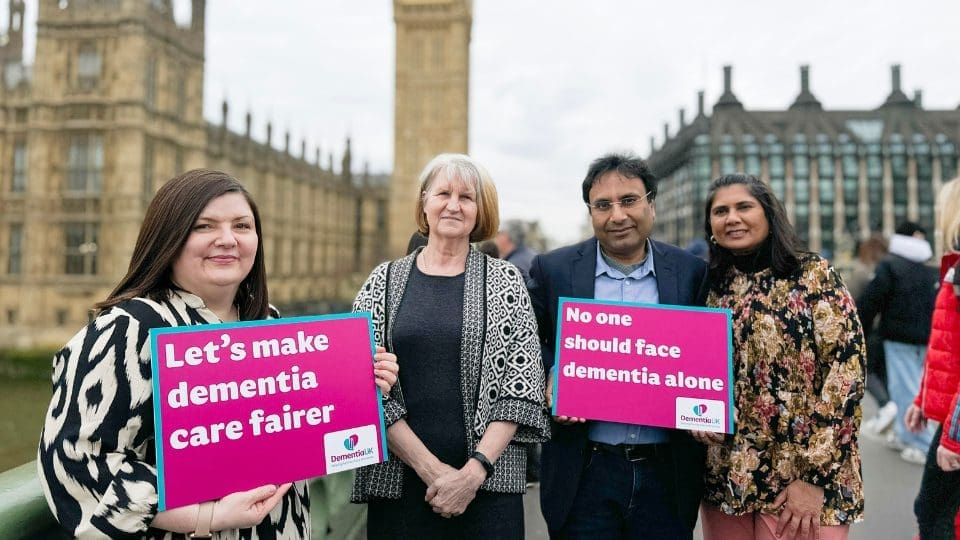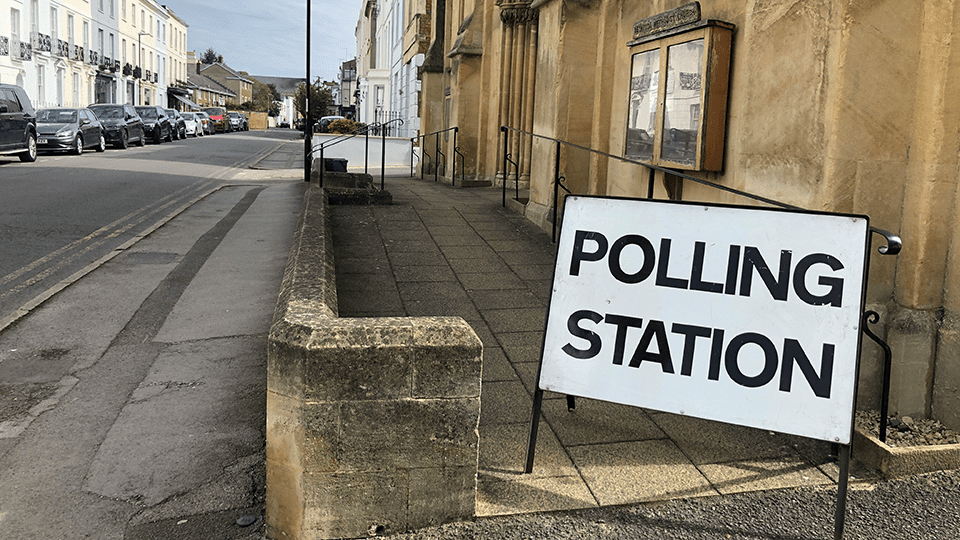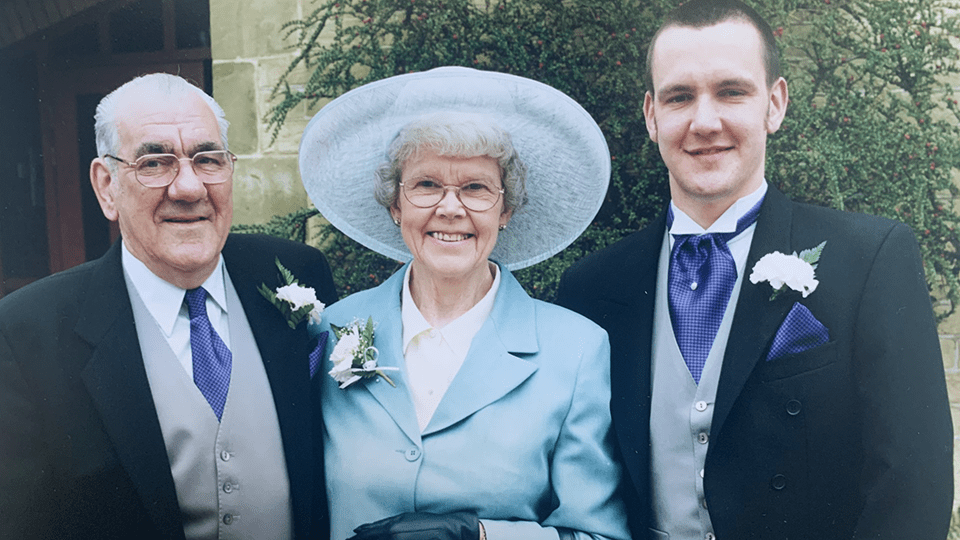
Fix the funding: make care fairer for people with dementia
We need the Government to urgently review the continuing healthcare funding process so that more people with dementia can access the support.

We address some common questions about voting in the General Election for people affected by dementia.
In short, yes.
Many people affected by dementia have successfully exercised their democratic rights by voting, but sometimes getting to the point of putting a cross in the box can be confusing. Here, we explain what you need to know about voting in the upcoming election on 4th July.
In its 2023 guidelines, the Electoral Commission – the organisation that oversees elections in the UK – states, “There are no legal barriers to prevent disabled people from voting, including voters with any learning disability or cognitive impairment.”
It also recognises that people can have multiple disabilities (such as mobility problems, poor eyesight and dementia) and that Returning Officers and other election staff need to understand the issues that can affect people in order to support them to vote.
The Electoral Commission website has further information and resources on voting with a disability.
People with dementia – especially those in the later stages – may lack mental capacity: the ability to make informed decisions. Mental capacity refers to the ability to:
The Electoral Commission states that, “A lack of mental capacity is not a legal incapacity to vote. Persons who meet the other registration qualifications are eligible for registration regardless of their mental capacity.”
This means that even if someone lacks capacity, they are still legally allowed to decide whether or how to vote. They must decide who to vote for themselves – other people, even those with lasting power of attorney, cannot make this decision on their behalf.
You might find our page on mental capacity and decision-making useful.
Registering to vote is quite a straightforward process. It can be done online or using a paper form which is available from the local Election Registration Office.
If someone has registered to vote in previous elections, they will not need to register again for upcoming elections. However, if details such as their address have changed – for example, if they have moved into a care home – they will need to re-register.
The deadline for registering to vote in the election is Tuesday 18th June 2024.
Voting can take place:
When someone registers to vote, they will be able to choose the method that best suits their needs. If this changes, they can amend their preference before the next election: further details can be found on the Government’s website.
There have recently been some changes to how to vote in local and general elections. The main change is that photo ID is now required at polling stations. Everyone who votes in person needs to show an accepted form of voter ID, eg:
People who do not produce ID at the polling station will not be allowed to vote.
Voting in person on someone’s behalf is known as proxy voting. A proxy vote must be arranged in advance on the Government website. The person chosen to place the vote (the proxy) must be someone the registered voter trusts to act on their behalf and must reflect the person’s wishes in the choice of candidate or preferred outcome in a referendum.
Voting is a fundamental right for people living with dementia, but it is important to note that not everyone will want to exercise that right. Voting is not compulsory and the person’s choice of whether to vote should be respected.
Some people with dementia feel it is important to vote and welcome the opportunity to do so. More broadly, voting can provide valuable opportunities to connect and reminisce, such as through conversations about politics and memories of previous elections; and to feel purposeful. Many people also enjoy the physical act of going to a polling station and placing their vote.
Others may prefer not to vote, for example if they find it confusing or unsettling or cannot decide who to vote for; this should also be respected.
What matters most is that everyone has the right to make their own decisions about whether to vote, how to vote, and who to vote for – everyone’s views matter, as does their right to express them in a democratic way.

We need the Government to urgently review the continuing healthcare funding process so that more people with dementia can access the support.

Over the span of a decade, Chris cared for both parents with dementia. He shares his story to highlight the systemic flaws carers face.
As dementia progresses, many people need help decision making. We explain what mental capacity is and how to support someone.